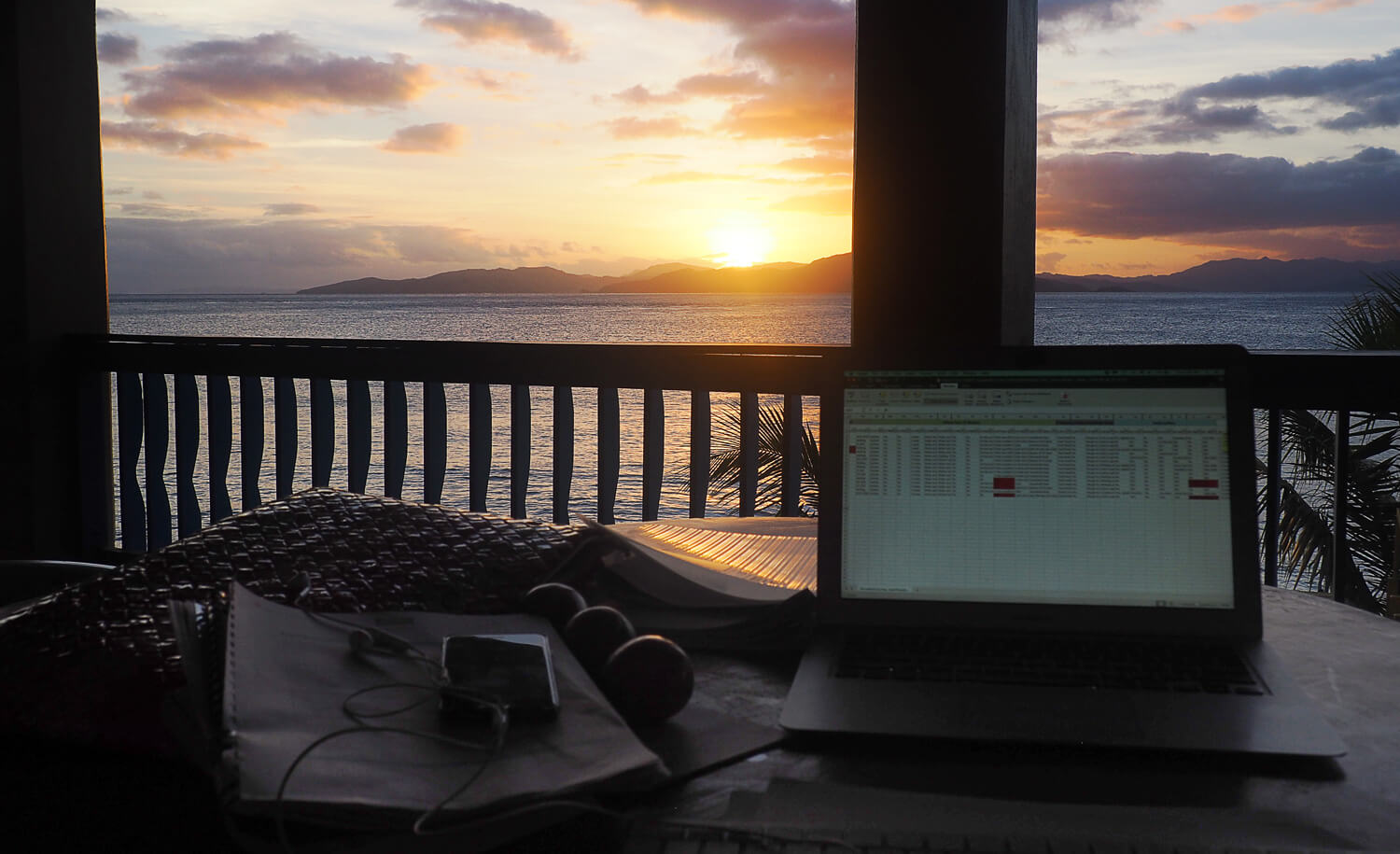
Candice with Fijian field researchers, coordinating Cash Transfer Programming research.
Having returned from deployment in Vanuatu, Candice is preparing for the next step in her humanitarian journey: a role in consultancy with a focus on Disaster Preparedness throughout Asia and the Pacific. It’s an international role, and a world of opportunity that comes from Candice’s time in the Master of Humanitarian Assistance. Although she’s currently preparing to work throughout Asia and the Pacific, the story starts in Finland.
“I completed an undergraduate degree in International Studies—which included a bilateral exchange to Finland for six months of the degree—where I was first exposed to the aid sector
“International Studies is a broad degree that exposes you to a wide variety of perspectives. I came out wondering how I could apply those ideas professionally.
“I wanted something more focused.
For Candice, practicality was important.
“We’ve all experienced lots of theory. When you’re looking at a pure theory course, I find it hard to imagine that after a year and a half of reading papers that you’d be ready to start work in the humanitarian sector.”
It wasn’t enough to learn about humanitarian action from the sidelines; Candice wanted to get involved and actively improve it. Beyond strong theoretical knowledge, she needed the skills to be sector-ready and the connections to access and unlock the right opportunities.
Practical learning with leading practitioners.
“I didn’t want to go from a broad undergrad to a broad master, and I didn’t.
“I didn’t just do assignments, or complete standard coursework or a syllabus. I was learning from my classmates, the lecturers. The direct learning with practitioners—dealing with people in the sector—was invaluable.”
One thing that really drew me in was the background of the lecturers. They were still working in the humanitarian sector, they had connections. There was clear expertise on offer.
“From that perspective, the networking alone has been fantastic. I came out of my experience with important connections. I worked in group assignments with people who were working in the sector, and those networks have opened a lot of doors as I move further in my career.

The view from Candice’s work desk on deployment.
“I got an internship during my time in the Master of Humanitarian Assistance—there was an opportunity that came up for master’s students. Getting that opportunity really opened the rest of the doors for me.”
Strong theory backed by sector-ready skills.
For Candice, having a practical backbone underpinning her theoretical knowledge meant less pressure when the call came to enter the sector.
When you start doing internships you’ve already participated in simulations, you’ve had interactions with working humanitarians.
“I was prepared with the right foundation of experience and knowledge, because I had already tested my skills in comparable simulations.
“Things constantly evolve in the sector, but I have the experience to embrace that and handle it accordingly. You’re ready to learn at a rapid pace and jump into any challenge.
“For me, it wasn’t a case of finishing an accreditation and saying – ok, now I have a master’s qualification in this – because that doesn’t necessarily mean you’re applying the skills and insights you learned from that experience professionally.
“I can refer to myself as a practising humanitarian now, because I work in multiple different areas, and I’ve got the skills to keep learning and growing as a professional.”

